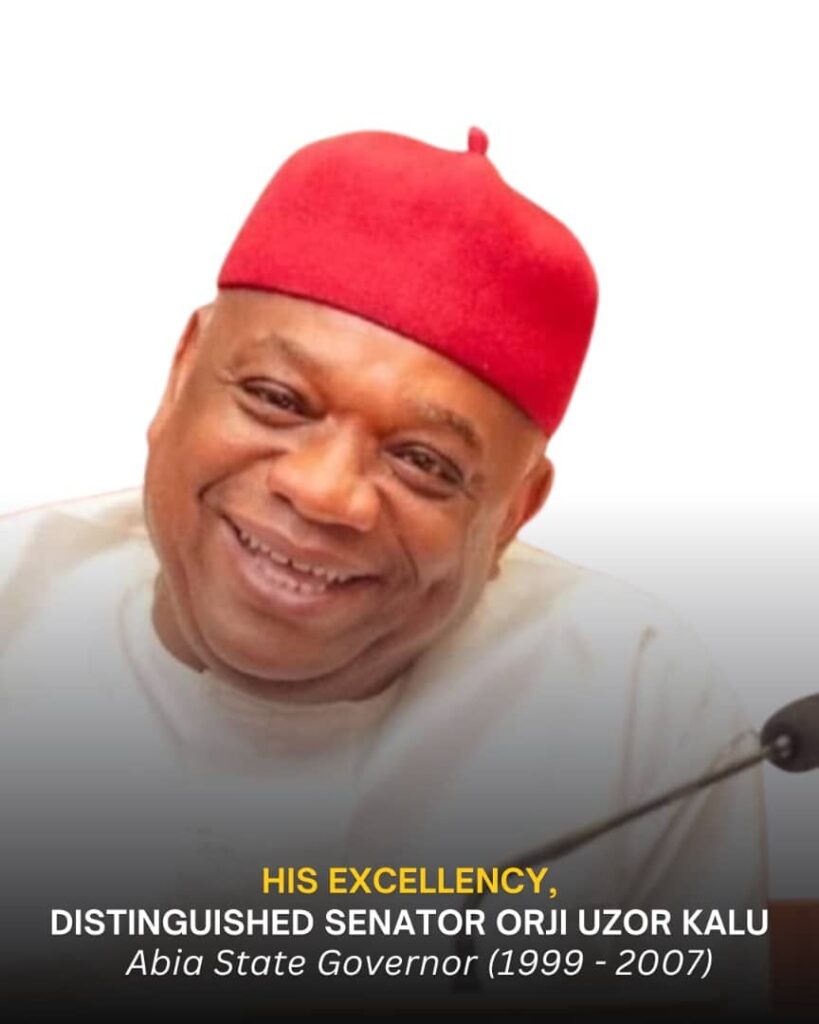
By Comrade Duke C.I
Yesterday, August 27, 2025, as we marked the 34 years of the creation of Abia State, it reminded me once again, the day my state of origin changed. That announcement came with mixed feelings of happiness, anxiety and uncertainties for both the citizens and the state as an entity. Barely one year after, the joy and hope seemed to have jumped to gear-2 with the return to democracy where the first civilian governor emerged.
Dr Ogbonnaya Onu, elected as the state’s first civilian governor in 1992, came with the promise of an early prosperous state, so much hope and aspirations of a young state eager to chart its democratic course. He was determined to take the state to an enviable level but his tenure was abruptly cut short by the military coup of 1993, leaving the state without the foundational democratic leadership it desperately needed during its formative years. This interruption came with a major setback which denied our dear young state the opportunity to establish its basic infrastructure, democratic institutions, and operational frameworks to smoothly run a state.
When democracy returned to Nigeria in 1999, Abia State, unlike the older states, found itself in a unique position, more like a precarious situation. Starting from scratch. The brief democratic experience of 1992 to 1993 was too short to establish any tangible foundation, leaving the incoming civilian administration with the huge task of building a state from the ground up. Thankfully, it was Dr Orji Uzor Kalu who assumed office as governor in 1999. With that clear understanding that he was not just succeeding a military administrator or coming for political grandstanding, OUK as fondly called, knew that he had an enormous mandate of democratic state-building, administrative structuring, establishing both political and bureaucratic operational standards, erecting basic required infrastructure which should have been established seven years earlier.
The foundational work he undertook between 1999 and 2007 essentially constituted the real democratic birth of the Abia State we are celebrating today. During his eight years tenure, Kalu embarked on what can only be described as a comprehensive state building project, establishing the basic infrastructure that any modern state requires: roads, schools, functional hospitals, and government institutions. More importantly, he created the democratic culture and expectations that have continued to define Abia State’s political landscape to this day.
His approach to economic development of the state stemming from absolutely no preestablished framework, re-engineered the business spirit of Aba city, positioning it again as the “Japan of Africa”. He focused heavily on that city, setting it as the commercial nerve centre of the state. His investments in Aba’s infrastructure, particularly the road networks and power supply, laid the foundation for what has become one of Nigeria’s most vibrant commercial hubs. The growth of Aba during his tenure was not accidental, but the result of his deliberate policies designed to create an economic foundation for the state.
𝙄𝙣 𝙥𝙧𝙞𝙣𝙘𝙞𝙥𝙡𝙚, 𝙊𝙐𝙆 𝙞𝙨 𝙩𝙝𝙚 𝙨𝙚𝙘𝙤𝙣𝙙 𝙙𝙚𝙢𝙤𝙘𝙧𝙖𝙩𝙞𝙘 𝙜𝙤𝙫𝙚𝙧𝙣𝙤𝙧 𝙤𝙛 𝘼𝙗𝙞𝙖 𝙎𝙩𝙖𝙩𝙚 𝙗𝙪𝙩 𝙞𝙣 𝙥𝙧𝙖𝙘𝙩𝙞𝙘𝙚, 𝙝𝙚 𝙞𝙨 𝙩𝙝𝙚 𝙛𝙞𝙧𝙨𝙩.
𝙄𝙣 𝙨𝙩𝙖𝙩𝙪𝙨, 𝙊𝙐𝙆 𝙞𝙨 𝙩𝙝𝙚 𝙨𝙚𝙘𝙤𝙣𝙙 𝙘𝙞𝙫𝙞𝙡𝙞𝙖𝙣 𝙜𝙤𝙫𝙚𝙧𝙣𝙤𝙧 𝙤𝙛 𝘼𝙗𝙞𝙖 𝙎𝙩𝙖𝙩𝙚 𝙗𝙪𝙩 𝙞𝙣 𝙧𝙚𝙖𝙡𝙞𝙩𝙮, 𝙝𝙚 𝙞𝙨 𝙩𝙝𝙚 𝙛𝙞𝙧𝙨𝙩.
_……………. I will be back on this matter._
_From the desk of;_
𝑪𝒐𝒎𝒓. 𝑫𝒖𝒌𝒆 𝑪. 𝑰.

